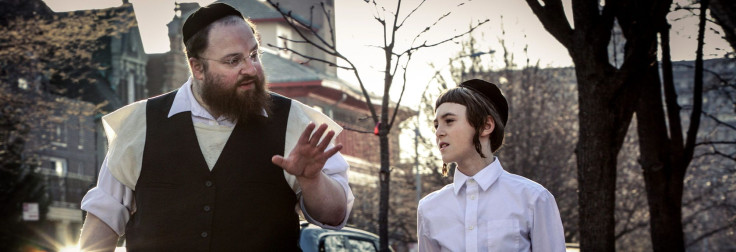Strangely, a film that boasts a narrative steeped in one the most notoriously esoteric religious cultures existing in America today might be the most effortlessly accessible output I’ve seen all year. Menashe, yet another ringing endorsement for the range and throwback commitment to quality championed by the relatively green A24, follows the forlorn plight of a devoted, albeit inept, father saddled by the tenants of his faith as he attempts to gain full custody of his son. Although the film makes no effort to hedge the particulars of the exclusionary lifestyle that informs its story, that all becomes irrelevant pretty quickly thanks to the masterful characterization of its lead actors.
Lost in a veritable sea of “films” that has placed a premium on lore building and celerity, Menashe becomes ever more intriguing the more accurately it depicts the grim monotony of everyday life. This is important. It’s the kind of minimalistic storytelling that manages to push the medium to the edge of its potential. Not a single frame was wasted in its brisk hour and twenty running time, yet you leave the theatre feeling certain that the filmmakers said everything they needed to in order to make their vista complete. This is a a quality lost on too much of modern cinema. Somehow the importance of depicting a human story has become passe.
My praise of Menashe isn’t a condemnation of the breed of blockbuster that has permeated the market, as I feel even those are experiencing their own sort of metamorphosis. It's instead a PSA about making sure films of its type don’t become relics, or perpetually subjected to “art house” theatres. Whatever aspects of Menashe you might deem niche pales in comparison of the soon to be mega hit Avengers: Infinity War , a film that requires its audience to be intimately aware of a decade long arc based on a purple Alien in search of cosmic rocks. Moreover, Menashe features a story that owes nothing to the conventions of the medium. Its ending doesn’t really feel like an ending – it’s a downbeat one that calls no attention to itself. Instead of the highnote you're trained to be sure it’s building towards, it opts for one that is both heartbreaking and anti-climatic.
A24 continues to subvert the Hollywood machine in ways that should feel obnoxious but don’t. From releasing the slow burn horror It Comes At Night, to the unapologetically raw Moonlight, and now the mostly subtitled father drama that is set in the Orthodox Jewish community of Manhattan, the studio holds true to its plan to defy expectations by means that are refreshingly organic.
I implore you to check the film out if the opportunity presents itself, though hopefully box office returns isn’t top of the list of A24’s primary concerns given, the empty theatres playing the film on both of my two viewings. In anycase, it is absolutely imperative that films of its type continue to get made and seen if we wish to preserve the integrity of the art form.

















